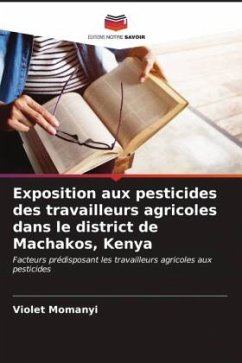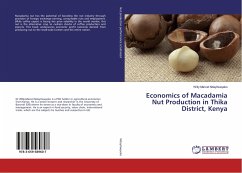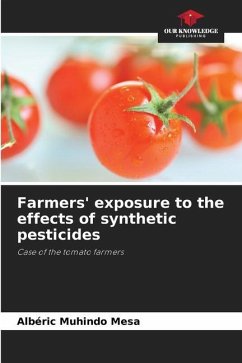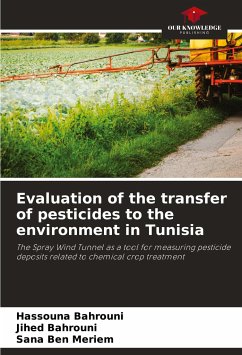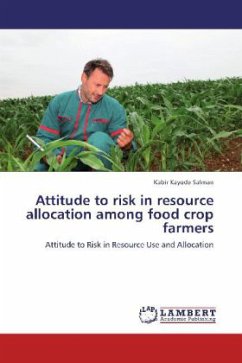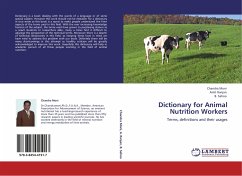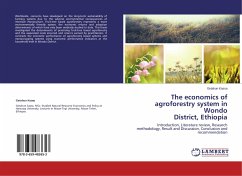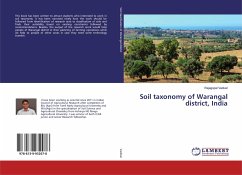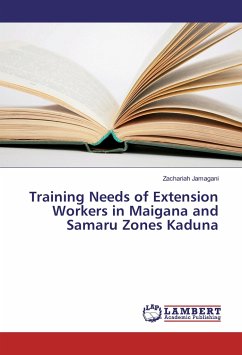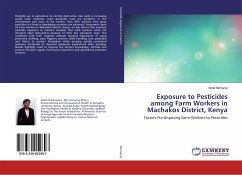
Exposure to Pesticides among Farm Workers in Machakos District, Kenya
Factors Pre-disposing Farm Workers to Pesticides
Versandkostenfrei!
Versandfertig in 6-10 Tagen
22,99 €
inkl. MwSt.

PAYBACK Punkte
11 °P sammeln!
Pesticide use in agriculture to control destructive crop pests is increasing world wide. However, some pesticides used are persistent in the environment and toxic to the worker. Over 60% workers who spray pesticides on farms in developing countries are poisoned. Assessment done on farm workers in Machakos District, Kenya, on key factors that promote pesticide exposure to workers revealed that most workers could not interpret label instructions because of their low education level. This combined with their negative attitude towards importance of using protective clothing, poor hygienic practice...
Pesticide use in agriculture to control destructive crop pests is increasing world wide. However, some pesticides used are persistent in the environment and toxic to the worker. Over 60% workers who spray pesticides on farms in developing countries are poisoned. Assessment done on farm workers in Machakos District, Kenya, on key factors that promote pesticide exposure to workers revealed that most workers could not interpret label instructions because of their low education level. This combined with their negative attitude towards importance of using protective clothing, poor hygienic practice while handling toxic pesticides and failure to protect themselves while spraying greatly promoted exposure attributed to reported symptoms experienced after spraying. Results highlight need to improve the farmers knowledge, attitude and practice through regular training by researchers and agricultural extension workers.



